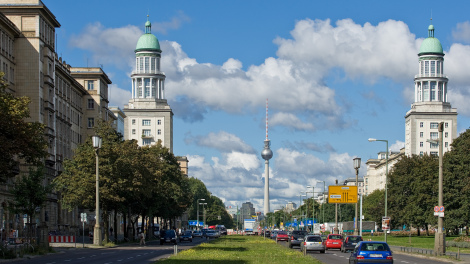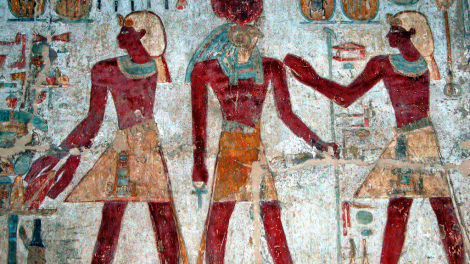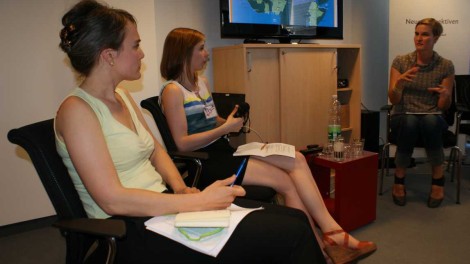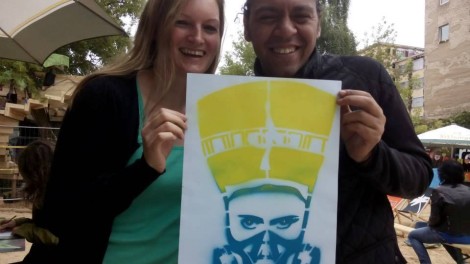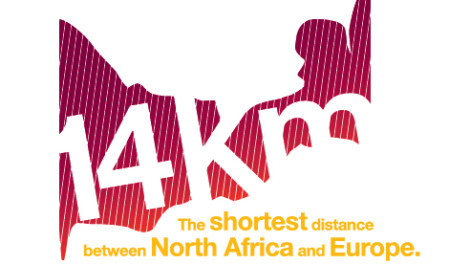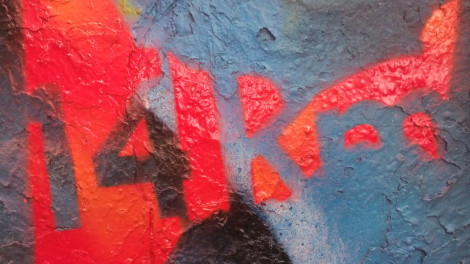News
Stadtjugendring Stuttgart diskutiert Studie über Jugendmigration in Europa
Die innereuropäische und euro-mediterrane Jugendmigration nimmt seit Jahren zu, was Städte und Kommunen vor neuartige Herausforderungen stellt. Eine internationale Expertenkommission des Stadtjugendrings Stuttgart identifizierte in einer Studie Probleme und Lösungsansätze zur Migration von Jugendlichen in Europa, die vom 14. bis 16. November beim Abschlusstreffen des Jugendmigrationsrats in Stuttgart diskutiert wurde. Stuttgart gilt bei der Integration von Migrant/innen bundesweit als Vorbild. Der Stadtjugendring Stuttgart trägt mit dem Projekt Jugendmigrationsrat dazu bei, indem er Empfehlungen zur Migration von Jugendlichen für Akteure der internationalen Begegnung ausarbeitet. Als Diskussionsgrundlage wurde eine repräsentative Studie in vier Ländern durchgeführt, die eine Momentaufnahme der Jugendmigration in Europa darstellt. In fünfzig Interviews – 25 in Stuttgart, acht in Straßburg, acht in Ferrara, neun in ganz Spanien – mit Vertretern von Behörden, NGOs und Wohlfahrtsverbänden wurden anzugehende Probleme identifiziert. Die Ergebnisse der Studie wurden beim Abschlusstreffen des Projekts, an dem auch ein Vertreter von 14km teilnahm, diskutiert. Zwei Tage lang setzten sich die Expert/innen mit Fragestellungen, wie gegen die soziale Isolation von jungen Migrant/innen vorgegangen und wie der Zugang zu einer geregelten Arbeit erleichtert werden könne, auseinander. In der Studie wurde bewusst nicht zwischen Flüchtlingen und Nicht-Flüchtlingen unterschieden. Deshalb wurde der rapide Anstieg von Flüchtlingen¹ und unbegleiteten minderjährigen Flüchtlingen² in Stuttgart als ein Hauptproblem identifiziert.³ Es biete sich jedoch die Chance, die Diskrepanz zwischen den nordafrikanischen Staaten, in denen hochqualifizierte Jugendliche keine Arbeitsmöglichkeiten finden, und den europäischen Staaten, denen aus demographischen Gründen zukünftig ein Fachkräftemangel droht, als win-win-Situation zu nutzen – damit wäre das Thema Migration in ein positives gesellschaftliches Narrativ eingebettet. Insgesamt waren die Expert/innen sich einig, dass die in allen untersuchten Ländern festgestellte restriktive Asylpolitik, die unzureichende finanzielle Ausstattung der Akteure und die hohen bürokratischen Hürden in der Arbeit mit Migrant/innen überwunden werden sollten. Migrant/innen sollten die Möglichkeit auf eine geregelte Arbeit und Zugang zu genügend Informationen über das Aufnahmeland haben sowie mit Dolmetscherdiensten und Deutschunterricht sprachlich besser integriert werden. Diskutiert wurde die Wohnproblematik im Zusammenhang von Gentrifizierung, Migration und Stadtpolitik. Besonders umstritten war die Weiterverwendung des Begriffs einer zu schaffenden „Willkommenskultur“. Außerdem wurde der Wunsch geäußert, den bisher nicht verwendeten Begriff „Menschenwürde“ in die Endfassung der Studie einfließen zu lassen, da sie nicht von allen Akteuren der Jugendmigration in Europa respektiert werde. Die in der Studie nachgewiesenen europaweiten Kriminalisierungstendenzen von Migration wurden kritisiert. Als erfreuliche Erkenntnis erwies sich hingegen der hohe Vernetzungsgrad der Einrichtungen zur Jugendmigration. Zur Untermauerung der Studienergebnisse und für die Formulierung der konkreten Handlungsempfehlungen sollen in den verbleibenden Wochen best practices zu den einzelnen Empfehlungen gesammelt werden. Am letzten Tag des Treffens präsentierte zunächst das Internationale Jugendforum Beispiele für gelungene Projekte zur Integration von Migrant/innen, wie z.B. das Pilotprojekt get 2gether, das Migrant/innen in (Sport-)Vereine eingliedert, oder die marokkanische Association Moultaka des jeunes pour le Développement, die Migrant/innen in die arabische Sprache, den marokkanischen Dialekt sowie die Sitten und Bräuche Marokkos einführt. Im Anschluss wurde die strategische Kommunikation des Jugendmigrationsrats von den Expert/innen konzipiert. Bis April 2015 sollen die Studie und die Handlungsempfehlungen veröffentlicht werden. Projektskizze Bereits 2011 nahm sich der Stadtjugendring Stuttgart in weiser Voraussicht des Themas Jugendmigration an – als es weder in der öffentlichen Debatte noch in Politik oder Verwaltung eine große Rolle spielte. Gegen anfängliche Widerstände wurde das Projekt Jugendmigrationsrat ins Leben gerufen, das bis April 2015 Empfehlungen zum Umgang mit Jugendmigration für Akteure der internationalen Begegnung kreieren soll. Als Diskussionsgrundlage dienen das Expertenwissen im Jugendmigrationsrat, Dokumentationen, Medieninformationen, Erkenntnisse aus dem Jugendforum und die beim Abschlusstreffen besprochene Studie. Das Projekt wird von der Bundesagentur für Migration und Flüchtlinge und dem Europäischen Integrationsfond gefördert. --- ¹ Zahl der Flüchtlinge in Stuttgart: 9/2012 - 871 Flüchtlinge; 12/2013 - 1.584 Flüchtlinge; 12/2014 vorauss. - 2.800 Flüchtlinge; 2015 vorauss. - 4.000 Flüchtlinge. ² Zahl der unbegleiteten minderjährigen Flüchtlinge (UMF): 2012 - 90 UMF; 2013 - 111 UMF; 2014 - 248 UMF. ³ Quelle zu Flüchtlingszahlen: 34. Stuttgarter Flüchtlingsbericht Die Teilnehmer des Abschlusstreffens des Jugendmigrationsrats in Stuttgart
Barbara Schenkel about her internship at MARCH in Lebanon (in German)
Zwei Monate lang war ich Praktikantin bei MARCH Lebanon, einer NGO in Beirut, die gegen willkürliche staatliche Zensur kämpft und sich ebenso für den Aufbau einer Zivilgesellschaft durch ein friedliches Miteinander der verschiedenen Religions- und Bevölkerungsgruppen einsetzt. Diese Verbindung zwischen Kultur- und politischer Bildungsarbeit war für mich als Studentin der Arabistik und Politikwissenschaften sehr spannend, und die Vermittlung des Praktikumsplatzes durch 14km e.V. empfand ich darum als durchweg gelungen. Der Libanon war mir schon durch mein Auslandssemester, das ich vor zwei Jahren in Beirut absolviert hatte, vertraut. Dementsprechend wusste ich bereits einiges über die Geschichte des Landes, das nach zwanzig Jahren immer noch unter konfessionellen Spaltungen und den wirtschaftlichen sowie sozialen Folgen des Bürgerkriegs leidet. Genauso war es aber keine Überraschung für mich, dass Beirut mit seinen vielen Cafés und Bars, der facettenreichen Kunstszene und internationalen Atmosphäre ein sehr spannendes, aber auch forderndes Umfeld ist. Die große Verkehrsbelastung, fehlende öffentliche Plätze und die mangelhafte Wasser- und Stromversorgung beinträchtigen das alltägliche Leben in der Stadt. Viele Ausflüge an der Küste Richtung Norden (Byblos, Batroun) und Süden (Saida, Sour) und in die Berge waren jedoch perfekt, um die dichte Großstadt Beirut am Wochenende gegen frische Luft, wunderbare Landschaften und einen entspannteren Lebensrhythmus einzutauschen. Generell war ich begeistert davon, dass die Freizeit für Libanes_innen selbstverständlich dazu da ist, das Leben zu genießen – sei es am Strand, bei gutem Essen oder einfach nur dabei, Zeit mit der Familie zu verbringen. Doch der Hauptgrund des Aufenthalts sollte ja mein Praktikum bei MARCH sein: Im Laufe meiner Zeit dort beschäftigten mich vor allem zwei große Aufgaben: verschiedene Projektanträge sowie das Aktualisieren der 'Virtual Museum of Censorship' Website. Letztere dokumentiert alle Bücher, Filme, Musik- und Theaterstücke, Websites, Veranstaltungen usw., die nach dem Wissen von MARCH der staatlichen Zensur zum Opfer gefallen sind und/oder immer noch zensiert sind. Zunächst brachte ich die Informationen über den juristischen Hintergrund staatlicher Zensur im Libanon auf den neuesten Stand. Dabei wurde schnell klar wurde, dass diese teilweise ohne rechtlichen Rahmen stattfindet, bzw. die Kriterien für Zensur so unklar formuliert sind, dass sie viel Raum für eine individuelle Interpretation von Zensurgründen wie „Verletzung religiöser Gefühle” (wie z.B. beim Film 'Noah'), „Unsittlichkeit” (z.B. Homosexualität) oder „Aufwiegelung konfessioneller Spannungen” lassen. Auch der staatliche Boykott israelischer Produkte wird in der Praxis oft auf eine Zensur jüdischer oder israelfreundlicher Künstler_innen ausgedehnt. Von der Theorie ging es zur Praxis, ich recherchierte, ob die Musikstücke, die im Museum aufgelistet waren, immer noch nicht zum Verkauf zugelassen waren. Da das Zensurbüro keine offiziellen Informationen hierzu veröffentlicht, arbeitet MARCH mit Importeuren zusammen, die anonym Informationen liefern, welche CDs und DVDs ins Land gebracht werden dürfen und welche verboten sind. Meine zweite große Aufgabe waren mehrere Projektanträge, die ich mitentwarf. Dabei soll z.B. ein Theaterprojekt Jugendlichen verschiedener Religionsgemeinschaften dabei helfen, über konfessionelle Grenzen hinweg zusammenzuarbeiten und sich frei von Vorurteilen kennenzulernen. Auch plant die NGO, mit einem Theaterstück über Zensur durch das Land zu touren, um die Bevölkerung für die willkürlichen Zensurmechanismen, denen die Kunst- und Kulturszene ausgesetzt ist, zu sensibilisieren. Öffentlichkeitsarbeit ist ein extrem wichtiger Bestandteil der Arbeit von MARCH, da keine offiziellen Daten zur Zensur vorliegen und die Menschen somit oft gar nicht wissen, welche Werke aus welchen Gründen zensiert werden. Insgesamt habe ich meine Zeit bei MARCH als große Bereicherung erlebt. Ich habe viele über die Arbeitsweise einer kleinen NGO gelernt, was auch bedeutet, dass der Arbeitsaufwand sehr unterschiedlich ausfallen kann, je nachdem, ob Deadlines oder eine Veranstaltung anstehen. Die Arbeitsatmosphäre in dem kleinen Team war aber sehr entspannt und freundlich, Ideen wurden stets zur Diskussion gestellt und meine Arbeit immer wertgeschätzt. Auf jeden Fall habe ich bei MARCH die Einblicke erhalten, auf die ich vor Beginn meines Praktikums gehofft hatte: ich wollte erfahren, wie NGOs unter widrigen Umständen arbeiten und für Werte kämpfen, die uns in Deutschland vielleicht selbstverständlich erscheinen. Im Fall von MARCH wurde mir klar, dass mehr Öffentlichkeitsarbeit mehr Empörung und somit mehr Druck auf Entscheidungsträger bedeutet, sich für mehr Meinungs- und Kunstfreiheit einzusetzen. Auf jeden Fall kann ich aus diesen zwei Monaten mitnehmen, dass es selbst in einem als liberal geltenden Land keine Selbstverständlichkeit ist, politisch relevante/kritische Musik, Kunst oder Theater machen zu können – aber auch, welche kreativen Möglichkeiten es gibt, für diese Freiheit zu kämpfen.
Tilmann Schneider’s report about his internship at Center for Arab West Understanding in Cairo
I had the chance to do a six-week internship with the Center for Arab West Understanding (CAWU). The NGO mainly translates Arab news into English and viceversa. With this huge database they try to summarise all the information concerning relations between the Muslim world and the Western influences. Mainly, they focus on the relation between Muslims and the Christian Copts in Egypt. This database can be used for research and scientific work. However, the NGO does not only do translations. The other part of their work is research. When you apply for an internship at the CAWU, they will discuss with you what topic you want to research and what your specific task will be. My research focus was: ‘How have certain Western news channels reported on Egypt in the time period between summer 2013 and 2014?’ I enjoyed my stay in Cairo a lot, mainly because of the city and its citizens. It was easy for me to get in contact with really nice people. They showed me around and we had a good time together. The internship gave me a normal routine in my daily life. I enjoyed working together with a young team and great people. But I have to say that the period of six weeks was too short. To undertake more complete research takes longer than just six weeks. In my case, I had only five full weeks of work due to the weeklong break during the end of Ramadan. These five weeks were too short to work as constructively as I planned. My Egyptian colleague invited me and another colleague to visit his hometown (2 hours south of Cairo) and join the family for his sister's wedding. That was one of two trips related to my engagement with CAWU. The other trip was even further south to a small Christian community, which celebrated a local festival. I had a good time during both of my trips. It was a great chance to venture out of Cairo, see the rest of Egypt and gain a better understanding of the country as a whole. To sum up my experience, I will definitely go to Egypt again. Maybe as an intern or just for holidays. I recommend anyone who is interested in the Middle East to visit Cairo.
ONE WEEK ONLY UNTIL RELIXCHANGE STARTS
Flights are booked, program is completed, everybody is ready to start. Only one week to go and the reliXchange project will have its first day: the day of arrival at the Berlin exchange week. We are really happy and curious how things will develop then. After receiving more than 100 applications by very different but always interesting young people with good ideas, it was hard to sort most of them out. For each exchange group, Egypt and Germany, ten participants were selected out of the most interesting applications and according to a mix of gender, religion and place of living. All of them will bring a lot of energy and motivation as well as a variety of personal experiences and point of views on religion and society. You can follow the new experiences the ReliXchange participants will make together. During both exchange weeks in Berlin and Cairo, the participants are going to blog, share their thougts and ideas. The blog will be available daily. Photo credits: Karl-Marx-Allee_CC-by-visitBerlin-SA-2.0 on flickr A project as part of the German-Egyptian Transformation Partnership The ReliXchange project receives financial support by the German-Egyptian Transformation Partnership through the German Foreign Office, by funds of the Ecclesiastical Development Services through Bread for the World - Protestant Church Development Service and by the “International Youth Work” Programme of the German Federal Child and Youth Plan through BK
Call for applications: ReliXchange
Photo credits: Egypt-9B-033_Amun Ra_CC-by-Dennis Jarvis-SA-2.0 on flickr A project as part of the German-Egyptian Transformation Partnership 14 Kilometer – the shortest distance between North Africa and Europe e.V. and New Horizon Association for Social Development are very happy to invite you to participate in ReliXchange - a German-Egyptian youth exchange! The inter-religious and inter-cultural exchange project will take place in Germany and Egypt. It aims to bring young people from both countries and with different backgrounds together and help them learn about each other and the role of religion in the two societies. You can participate if you live in Germany or Egypt and if you are between 18 and 26 years old. In the course of the exchange, 10 young Egyptians and 10 young Germans will spend one week in Germany (October 27th to November 2nd, 2014) and one week in Egypt (November 17th to November 23rd). During the ReliXchange project you will learn about Islam, Christianity, Judaism (principles of faith and traditions), the role of the corresponding faith groups in both countries, and the different ways of developing interfaith dialogue with other young people. You will develop new perspectives on interreligiosity and ideas for how a tolerant and respectful coexistence can be achieved. At the same time, you are invited to develop with us new methods for interfaith dialogue, in particular those which you consider as sustainable among young people. Participation in this exchange project costs a fee of 140 Euros for German participants and 700 EGP for Egyptian participants (including travel Berlin-Cairo and return, accommodation, food, programme). Conditions for participation: You need to be able to participate actively in both exchange periods (participation in only one of the exchange weeks is not possible), and you need a German or Egyptian passport which is valid until 05/2015 minimum. You should be interested in the topic of religion and its societal role (you do not necessarily need to be a religious person yourself) and be motivated to engage in interfaith dialogue. Your English should be good enough to sustain an extensive conversation. APPLICATIONS CLOSED! We thank all applicants for their applications! Further more we are really overwhelmed by the huge interest in ReliXchange. Deadline: September 18th, 2014 Contact for questions ReliXchange flyer - download and share! The ReliXchange project receives financial support by the German-Egyptian Transformation Partnership through the German Foreign Office, by funds of the Ecclesiastical Development Services through Bread for the World - Protestant Church Development Service and by the "International Youth Work" Programme of the German Federal Child and Youth Plan through BKJ.
Vacancies: Volunteer posts in the 14km Volunteer Programme
CALL FOR APPLICATIONS Vacancy: Position as a Volunteer at 14km e.V. Are you interested in the North Africa/the Middle East? Do you want to commit for a good cause? Are you keen to improve your communication skills? Are you able to work independently? Then you might be the right candidate to volunteer with us! ‚14km – the shortest distance between North Africa and Europe‘ e.V. is a non-profit NGO based in Berlin which supports intercultural exchange and co-operation between Europe and North Africa/the Middle East. Our international volunteer programme with North Africa/the Middle East facilitates internship/volunteer positions with our partner organisations in different Arab countries. But it is not just for volunteers – it is also volunteer run! This is why we are looking for four motivated volunteers to help us in the programme. For more information on our organisation please see www.14km.org. Tasks - Facilitation of internships/volunteer placements - Communication with applicants, partner organisations and 14km colleagues via Email - Carrying out interviews with applicants via Skype - Evaluation of profiles and evaluation forms - Updating the data base of the volunteer programme - Selection of suitable organisations for applicants - Participation in 14km team meetings in Berlin (app. every 3 weeks) - Occasional participation in events in order to present the 14km volunteer programme What We Ask For - Interest in North Africa and the Middle East - Intercultural sensitivity - Readiness to deal with people - Communication skills (politeness, kindness, dependability) - Very good English skills (German not absolutely necessary) - Reliability and carefulness - Organisational skills - Readiness to work from home and from own PC - First experiences in human resources management are an asset - Regional knowledge on North Africa and Middle East is an asset, especially on Palestine, Jordan, Morocco, and Egypt - Knowledge of French and Arabic is an asset What We Offer - Working in a young, unconventional non-profit association - Nice team of 7 other volunteers without hierarchies - Flexible timing of working hours according to work load (ca. 4-7h/week) - Gaining of work experience in intercultural work and human resources management - Opportunity to facilitate intercultural experiences for young people and to support exchange between Europe and MENA - Sense of achievement through many facilitated internships/volunteer placements - Opportunity to become involved also in other work areas of 14km by bringing in own ideas Applications including short letter of motivation (Email) and VC (PDF) to be sent to Helena Burgrova at helena.burgrova@14km.org until 24 August 2014. We particularly welcome applications from persons with migration background.
Der Bericht zur Fachtagung “Flucht // Migration // Entwicklung” ist online
Beim Thema Flucht und Migration findet im entwicklungspolitischen Kontext momentan ein beachtenswertes Umdenken statt, das im Rahmen der von 14km e.V. und der DAFG e.V. ausgerichteten Fachtagung „Flucht // Migration // Entwicklung – Facetten der Migration zwischen Nordafrika und Europa“ von Wissenschaftler/innen, Menschenrechtsaktivist/innen, Diasporavertreter/innen und interessierten Teilnehmer/innen skizziert wurde. Im Berliner Kontorhaus diskutierten sie am 11. und 12. Juli 2014 in drei Paneldiskussionen und vier BarCamp-Sessions unter anderem über die Rahmenbedingungen der Migrationsprozesse nach Europa, die Situation in den Herkunfts- und Transitländern sowie das entwicklungspolitische Potenzial von Remittances und Diasporaorganisationen in Deutschland. Im Rahmenprogramm wurde die Reportage „Fremd“ von Miriam Faßbender gezeigt, die für eine Auseinandersetzung über dem Film anwesend war. Außerdem war in den Tagungsräumlichkeiten eine Ausstellung über Fußball und Entwicklung in Afrika installiert. Das 14km Team bedankt sich ganz herzlich bei allen Teilnehmer/innen für ihr Kommen sowie für die zahlreichen interessanten und engagierten Beiträge und freut sich sehr über die vielen Ideen und Kontakte, die während der Fachtagung entstanden sind. Die ausführliche Zusammenfassung der Fachtagung mitsamt den Downloads der Sitzungsprotokolle, der PowerPoint-Präsentation von Steffen Angenendt (Stiftung Wissenschaft und Politik) und des Audio-Inputs der Mercy Wings Organisation sowie einer Weiterleitung zu den Beiträgen unserer Medienpartner finden Sie hier. Der Fachtag wurde gefördert aus Mitteln der Landesstelle für Entwicklungszusammenarbeit des Landes Berlin. Kooperationspartner Medienpartner: multicult.fm Medienpartner: Alsharq Analyseportal und Reiseveranstalter GbR
On an exchange visit to 14km – Ahmed Hassen from el Takeiba Center (Cairo)
From mid June to mid July 2014, Ahmed Hassen, the founder of El Takeiba Center for Artistic and Cultural Development in Cairo, Egypt, is visiting 14km in Berlin to work together on different projects and to share experiences - an exchange visit funded by the DAWRAK exchange programme of the Anna Lindh Foundation. The first cooperation between Ahmed and 14km consisted in a street art workshop for young people, teaching and discussing graffiti and its use as a tool of protesting, and giving a general background about the art of public wall painting and linking it to German history. Ahmed had a great time, showing a very creative attitude and - despite not speaking the same language - working side by side and in intense interaction with the young participants. El Takeiba Center is the first cultural center located in the poor Cairo area of Shoubra El Kheima. Ahmed, who is the director, intentionally opened it there, wanting to create a space that provides access to arts and culture for the inhabitants of the area who so far have been deprived of it. This is one of the main reasons for why it expanded quickly and is now well-known among the people of the district. The whole idea of founding this center came about due to a man called Rabea who was the guard of a famous art institute in Cairo. He loved poetry so much that someday he tried to get the chance to get into the institute and narrate a poem of his own to the audience. Yet he was banned because he was "just" the guard of the place. This incident had a deep impact on Ahmed, and he decided to help Rabea and everyone interested in art no matter what their social class, profession, education level, political views or even religious views are - everyone should have the chance to express themselves via arts and try out their talents. Ahmed believes in the power of art to change what words and arguments cannot. The El Takeiba Center has various projects and organises workshops for different groups of people according to their age, gender, and interests and covering different topics and different artistic methods, from acting, directing, improvising on stage, singing, comic drawing to caricature painting. The center also organises "cultural visits", where people from Shoubra El Kheima are invited to different cultural events elsewhere in the city. The only problem the center is facing is - as it often happens with small NGOs - the funding for these projects. Thus, Ahmed and his co-workers at El Takeiba invest a lot of their own money and time, yet they believe the difference they get to see in the people of Shoubra El Kheima is worth it, as they change for the better and discover their interest in learning more. Later this year, Anja Gebel from 14km will visit Ahmed in Egypt and work with the El Takeiba Center in Shoubra El Kheima.
On short notice: Internship placement with 14km (Berlin) from 4 August to 30 September 2014
From 4 August, an internship placement is available at the Berlin office of 14km (until minimum 30 September, or longer). It is a part time internship with weekly working hours from Monday to Wednesday, 10am-6pm. The internship is unpaid. The envisioned tasks of the intern consist in: - Supporting the preparation and organisation of one or more international exchange projects - Research and maintenance of international contacts - Setup and maintenance of a new contact database - Supporting PR activities - Creative work on website texts and photos - Supporting the conceptualisation of future projects - The conceptualisation of own project ideas is possible. If you are interested, please send your application, consisting of a short cover letter and your CV, via email to Anja Gebel at info@14km.org. We are looking forward to receive your application until 7 July!
Peace Doves, Flower Throwers und Nefertiti with Gas Mask – a 14km Street Art Workshop
On the last weekend of June 2014 a Street Art Workshop under the title of “Against Exclusion! Transcending walls and building bridges via Street Art” took place in Berlin-Friedrichshain. It was held by 14 km in cooperation with the Egyptian El Takeiba Centre for Artistic and Cultural Development, the youth club Jugendclub Feuerwache and the beach club YAAM (both in Friedrichshain) in an endeavor of showing the young participants ranging from the age of 13 to 17 a modern and artistic way of protesting and commenting on life conditions that they might dislike or be critical of. The workshop has been a complete success as the participants received the content through an active learning methodology and supporting material; our main rationale was showing the participants how can they reject something yet be ready to express this view through art and painting. At the same time, the participants had the chance to familiarise themselves with the role of street art as a political instrument in the so-called "arabellions". The first day started at the youth club with an introduction about graffiti and its role in the Arab protest movements with examples of different graffiti paintings and stencils from the Egyptian and Tunisian revolutions. It was followed by a workshop where the participants were taught by a professional graffiti artist (Pjotr Obuchoff) how to make their own stencils and try them out on wooden plates. They were working side by side and had lots of fun with the multicultural team of 14km, including members from France, Egypt, Great Britain, and Germany, and Ahmed Hassen from the El Takeiba Center in Egypt, who is visiting 14km via an Anna Lindh exchange scholarship. We finished in the evening with a nice open air barbeque at the youth club. The second day started with a joint walk along the Berlin wall, where the young participants approached the famous symbol of the German separation and the graffiti paintings of the East Side Gallery by means of a “Wall-Quiz”. On arrival, everyone was ready to finish cutting their stencils and embark on the spraying part and we had the luck to have an “authorized graffiti area” in form of a wall available for the workshop, thanks to the generosity of the YAAM beach club which is located close to the East Side Gallery of the Berlin wall. There, everyone started spraying their own stencils, tags, and even some styles, with some being positively surprised by the rewarding stencil technique which enables even the less talented ones among us to produce impressive artistic outcomes very quickly. Thus, the day ended with an extremely colorful outcome and many happy faces, and with a 14km team proud to have achieved both our artistic and intercultural aims. More photos are available on our Facebook page. This is a project of the Local Action Plan ('Lokaler Aktionsplan') Friedrichshain-Kreuzberg



